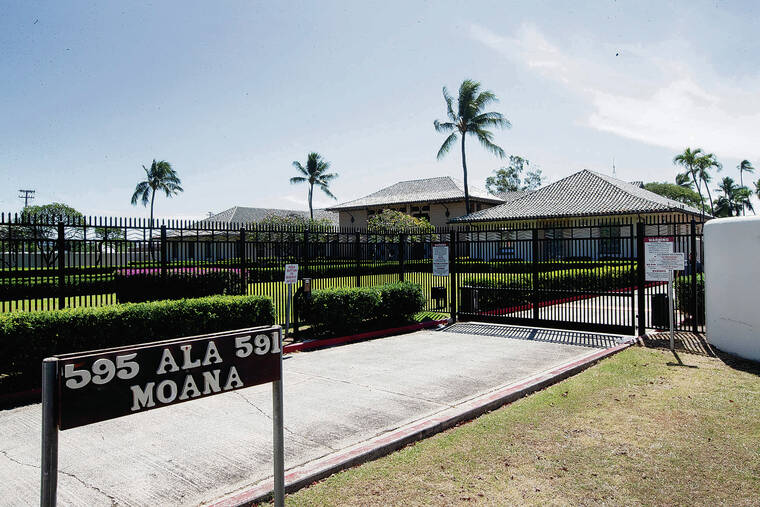U.S. Navy Lt. Tyler “Tattoo” Nekomoto of Lawa’i has been shot at while making bombing runs over Baghdad, landed his F/A-18 Hornet jet on an aircraft carrier on a moonless night, and, lately, taken out enemy targets so that ground forces could move toward the Iraqi capital.
And every time he launches from the deck of the USS Constellation, in the cockpit there is confidence mixed with fear, and millions of other things and emotions going through his head as he carries out missions in his single-seat fighter.
“A lot goes through your head when you’re being shot at,” said Nekomoto, son of Mr. and Mrs. David Nekomoto of Lawa’i, in an e-mail interview with The Garden Island. “You try to keep a level head, but you start to operate on pure brain-stem power. That’s where all the years of training come in,” he said.
“The Navy does a great job of training us, and they ensure that we are ready for any scenario. It is scary, though.”
From miles overhead, the ground forces have big fans in Navy pilots, Nekomoto said. “When I think I’m having a bad day, I try to think about the ground forces. They are the real heroes in this war,” he said.
“They sleep in mud, on the ground, eat MREs (meals ready to eat), and don’t get a true good night’s sleep. They are in hostile territory 24 hours a day, and will be there until the fight is over and we have all accomplished our mission,” he said. “I pray for them all the time.
“I also try to think about my family and friends, and how hard it must be on them for me to be out here. They sit and watch, hoping for nothing but good news,” said Nekomoto.
“They are also the real heroes of this war. A solider is only as good as his supporting staff, and I am extremely lucky to have such a wonderful one,” he added.
“Everyone that is reading this knows who they are and how they’ve helped me become the person I am today. I thank my lucky stars everyday for such wonderful people.”
The intensity of his day’s work is such that fear could take over, if he let it.
“You can’t ever let your guard fall during intense times like this. Nothing is easy out here,” he said. “Landing aboard the ship at night during a moonless night can be just as scary as getting shot at.
“Fear is something you have to embrace in this job. I’ve been scared many times during this conflict,” he continued. “I wouldn’t be human if I wasn’t. However, problems arise when you let that fear take over,” said Nekomoto.
“You learn to compartmentalize, and take each step of the day slowly and methodically, even if you’re moving at seven to eight miles a minute.”
Nekomoto has lost track of the number of missions he’s flown since the war began, and is willing to do whatever needs to be done to support the ground forces. “I’m just a tool for them to use to get their job done.”
Over the course of the conflict, he has been assigned to take out “targets of significant military importance, or targets that are in direct contact with our ground troops.
“Contrary to popular belief, we don’t have the desire to go out there and bomb everything we see,” he said. “All the strikes are intricately planned and executed. If there is any doubt at all, we don’t release our weapons. It’s that simple.”
Even with state-of-the-art weaponry systems that include laser-guided missiles and other technology, every pilot worries about taking out civilian targets during each mission, he said.
“There’s never a time when you don’t think of hurting civilians. That’s constantly in our scan,” he said.
“We are dropping smarter weapons, with laser-like accuracy. Collateral damage assessment is something that will always be a part of our final attack checklist,” he continued.
“As I said before, if there’s ever any doubt, there is no doubt. We don’t release our weapons.”
Finally, Nekomoto responded this way when asked how he would feel if it was confirmed that one of his bombs actually took out Iraqi President Saddam Hussein:
“I’ll tell you what. If that happens, ask me then, and I’ll tell you how I feel at that moment. Right now, it’s too early to speculate.”
Staff Writer Paul C. Curtis can be reached at mailto:pcurtis@pulitzer.net or 245-3681 (ext. 224).




